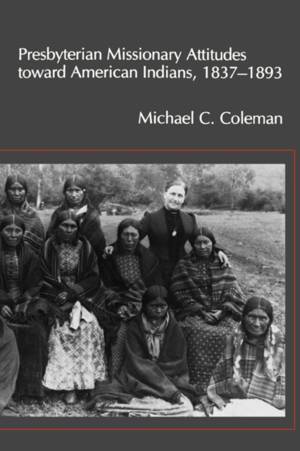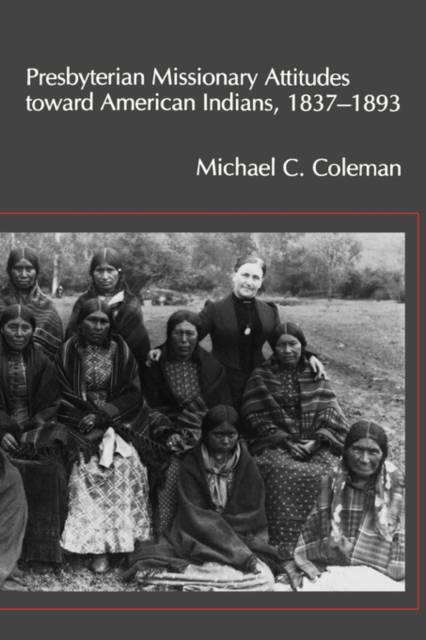
En raison d'une grêve chez bpost, votre commande pourrait être retardée. Vous avez besoin d’un livre rapidement ? Nos magasins vous accueillent à bras ouverts !
- Retrait gratuit dans votre magasin Club
- 7.000.000 titres dans notre catalogue
- Payer en toute sécurité
- Toujours un magasin près de chez vous
En raison de la grêve chez bpost, votre commande pourrait être retardée. Vous avez besoin d’un livre rapidement ? Nos magasins vous accueillent à bras ouverts !
- Retrait gratuit dans votre magasin Club
- 7.000.0000 titres dans notre catalogue
- Payer en toute sécurité
- Toujours un magasin près de chez vous
Presbyterian Missionary Attitudes Toward American Indians, 1837-1893
Michael C Coleman
Livre broché | Anglais
39,45 €
+ 78 points
Description
Based on the correspondence of missionaries in the field, this book offers valuable insight unto understanding Protestant attitudes toward the American Indians in the nineteenth century. By focusing upon the work of the Board of Foreign Missions of the Presbyterian Church in the U.S., the book portrays a major Protestant denomination's evangelical program to take the Indian from heathenism to gospel light. From its founding in 1837 the board sent over 450 missionaries to at least nineteen diverse and widely separated Indian tribes, with a goal of uplifting them into the Protestant tradition of Christian civilization. These zealous men and women sent back thousands of detailed and often highly personal letters from the Indian field, and this book is based primarily upon that store of correspondence. Seeking to fill the need for critical case studies of individual missionary organizations, this book depicts the missionaries as cultural revolutionaries in the deepest human sense. Moved by a nearly absolute ethnocentrism, they denounced almost every aspect of tribal culture. Among the Indians they found virtually nothing worth incorporating into the codes of Christian civilization. Yet these missionaries resisted racial explanations for what they saw as Indian failings and retained a conviction that individual tribal members were both eligible for eternal salvation and capable of attaining citizenship in the United States. In this book the author places the work of the Board of Foreign Missions in a historical context and presents the goals, methods, backgrounds and motivations of the missionaries. He also examines the cluster of ideas which constituted the Presbyterian definition for Christian civilization.
Spécifications
Parties prenantes
- Auteur(s) :
- Editeur:
Contenu
- Nombre de pages :
- 222
- Langue:
- Anglais
Caractéristiques
- EAN:
- 9781604730074
- Date de parution :
- 26-11-07
- Format:
- Livre broché
- Format numérique:
- Trade paperback (VS)
- Dimensions :
- 152 mm x 229 mm
- Poids :
- 349 g

Les avis
Nous publions uniquement les avis qui respectent les conditions requises. Consultez nos conditions pour les avis.






